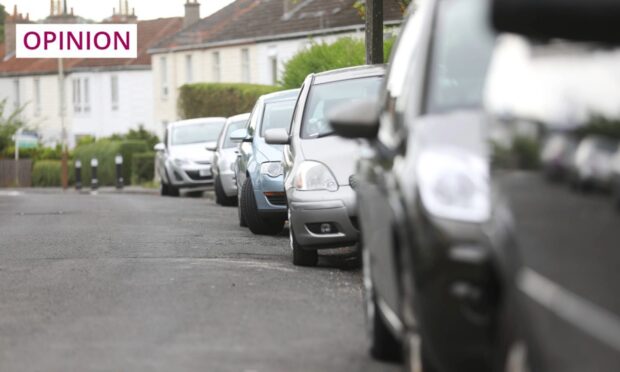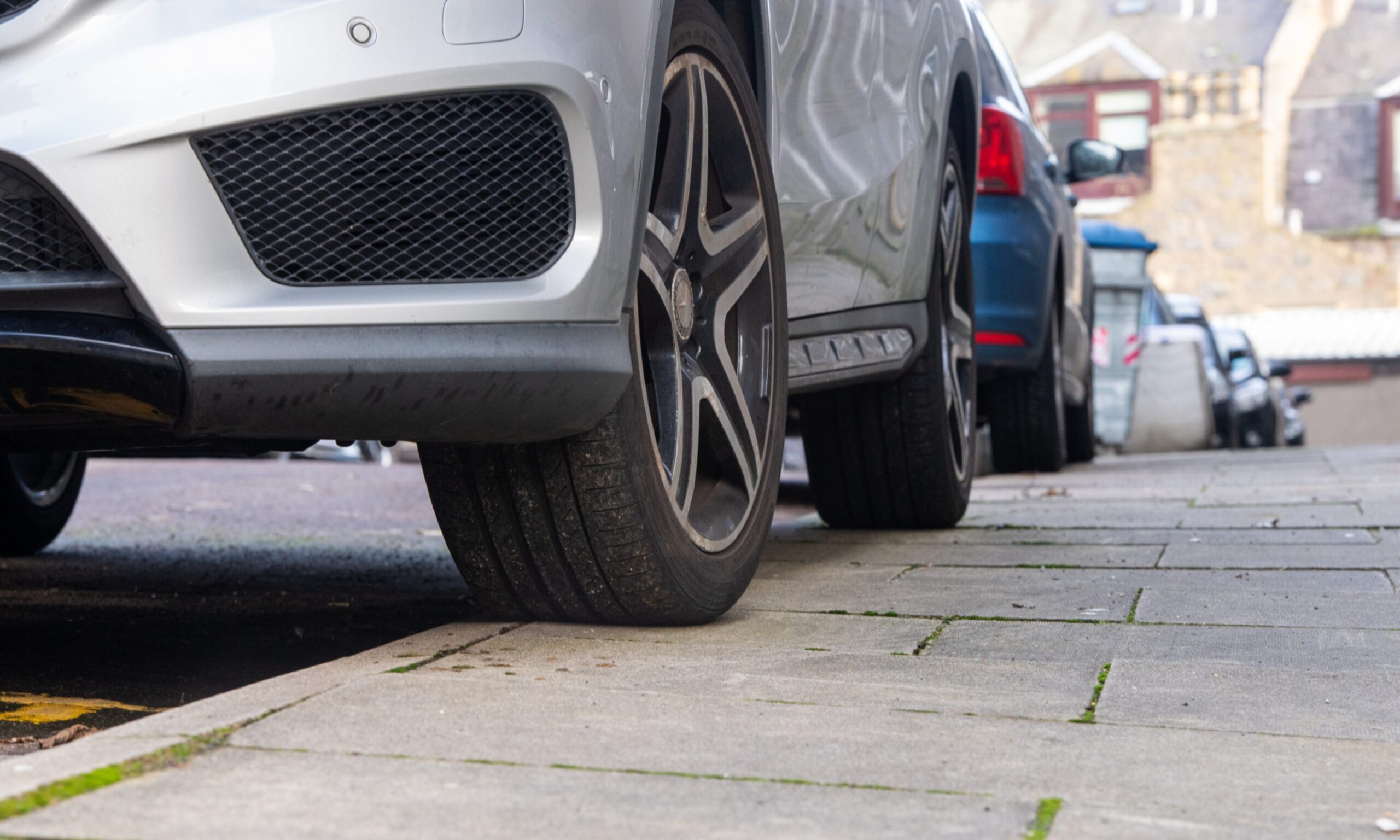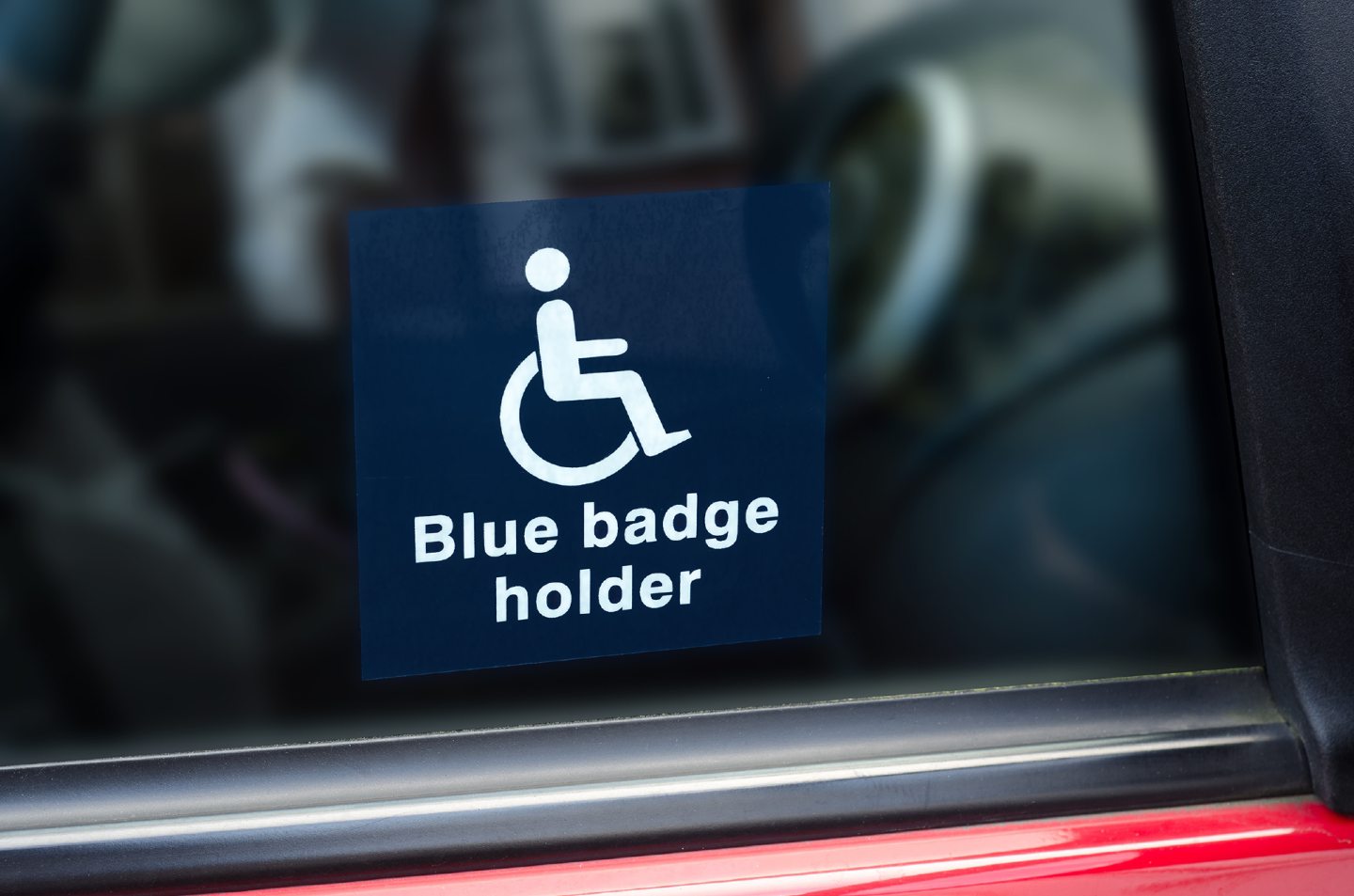Imagine someone in a wheelchair who, on leaving his home, finds his way blocked by a car parked on the pavement.
He has to turn round and make his way in the other direction in order to find a dropped kerb, so he can cross the road without risking his chair overturning. But, to his dismay, he finds a car is blocking the dropped kerb, so he has to risk taking his chair over a raised one, struggling to keep himself and his chair upright.
Now, imagine this is happening on a busy street with lots of traffic, in winter, with poor visibility, a wet road and rainwater hiding hazards like potholes. In order to get around the car parked on the pavement, he has to watch out for traffic as well as keeping an eye on the slippy, uneven and damaged surface of the road.
Or, look at a mother taking her children out, one of whom is in a pram. Imagine she, too, finds she has to go into the road in order to get past a car parked on the pavement, and also discovers the dropped kerb is blocked by a vehicle. Not only does she have to get the pram down the raised kerb, she also has to keep an eye on her other children as she manoeuvres the various hazards on the busy road.
Or, it could be someone with visual impairment who uses a white stick or a guide dog – or both – to find her way to her destination. Unable to see the traffic, she may have to rely on her guide dog or on hearing oncoming vehicles.
All of these people, as well as many others (including those of us whose limited mobility requires a walking aid), are having their safety and well-being, even their lives, put at risk because of the anti-social behaviour of a minority of drivers. Yet, until recently, such behaviour was not illegal.
Now, at last, it has been outlawed. It was during 2019, in the Transport (Scotland) Act, that the Scottish Government gave local authorities the power to ban pavement parking, and to fine drivers who ignore the ban.
However, for some reason, the legislation didn’t come into force until December 2023. The first local authority to introduce a ban was Edinburgh, followed quickly by others, including the Highlands and Aberdeenshire.
The devil is in the detail
As always, the devil is in the detail. So, what exactly is now banned, and what exemptions are there?
The new rules outlaw three activities: parking on pavements and on road verges, blocking dropped kerbs, and double parking (that is, parking parallel to another vehicle). There are, of course, common-sense exemptions. So, the dropped kerb parking ban doesn’t apply if the kerb is in front of a garage, driveway or property entrance.
The exemptions to the pavement parking ban are also common-sense ones, and fall into three categories. The first is for emergency services and the provision of medical assistance, including care staff attending people in their homes. It also applies to members of the public who stop to help someone suffering a medical emergency.
Vehicles used for roadworks, the removal of obstructions and local authority waste collection are exempt, as are vehicles delivering or collecting items from premises – but they can only park for a maximum of 20 minutes.
These exemptions would normally only apply if there is no alternative parking available within a reasonable distance. The council can also allow exemptions for streets where banning pavement parking would cause serious problems, for example on roads that are so narrow, a parked car would block access to other road users.
Those of us who have blue disability badges are NOT exempt.
The penalty for pavement parking is a fine of £100, reduced to £50 if paid within 14 days. Also, where a vehicle has outstanding fines of over £150, the council has the right to remove it.
Help enforce the rules where you live
Of course, the key will be enforcement. With that in mind, Raymond Bremner, the leader of the Highland Council, has told me that policing the new rules will be added to the jobs of the council’s parking enforcement officers. And they will, initially, be targeting town centres and main roads.
Clearly, with council finances being stretched, there has to be priorities, but it is in residential areas where some people can experience the worst problems
Clearly, with council finances being stretched, there has to be priorities, but it is in residential areas where some people can experience the worst problems. And Councillor Bremner did tell me the council hopes to target residential areas “based on observations and reporting by the public”.
This implies the ball is in our court: if we see illegal pavement parking in the streets we live on, then reporting it to the local council will help officers reduce the extent of this anti-social behaviour. Those who live in the Highlands can do so by emailing parking@highland.gov.uk or by phoning 01463 239786.
Kevin Crowe is a writer and former bookseller living in Wick, Caithness



Conversation